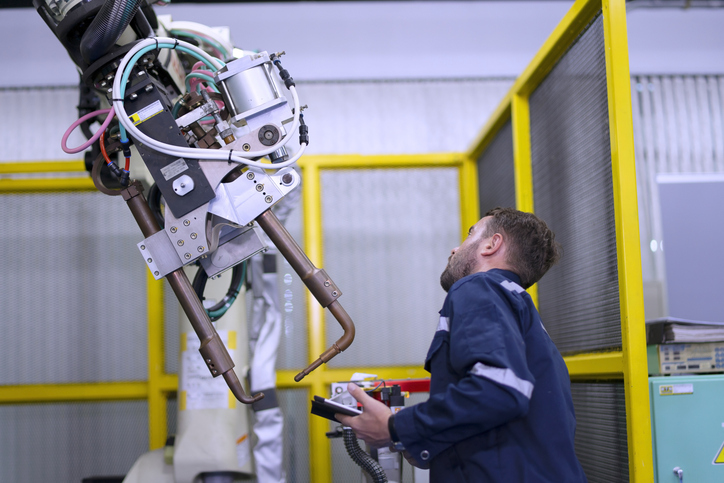How can organisations (retailers and advertisers) track the digital journey of ad content?
Retailers can use IP proxy networks to view the advertisements they’ve paid for in the exact same way as they appear to everyday consumers. This allows businesses to simulate typical consumers and check their ads are being displayed to the correct audience, at the correct time, in the correct region.
This method ensures that every penny of an organisation’s ad spend is put to the best use and does not fall into the hands of fraudsters.
Why is this important in preventing things like ad fraud?
Ad fraud comes in many different forms, both simple and complex, but regardless of the form it takes it has become impossible to ignore the damage it is doing to the industry. Research by the ANA (Association of National Advertisers) predicted the total cost to be $5.8bn globally last year, while Juniper Research forecasted the cost to advertisers would be $42bn by the end of 2019.
It has never been more essential to ensure online campaigns are free from fraud, particularly in the face of increasingly sophisticated generations of cyber criminals. The only reliable way to do this is being able to view your advertisements through the eyes of real consumers, exactly as they appear to them. This allows you to verify your mass-scale advertising campaigns are malware free and that your campaign reaches the consumers you paid for it to reach. IP proxy networks allow you to do so consistently and in real-time, enabling you to see your campaign in the same way as, for example, an iPhone user in California or an Android user in Denmark.
Advertising fraudsters know they are being watched, and in order to avoid detection, feed those monitoring them incorrect information. This is why data collection platforms such as IP proxy networks are necessary for performance marketers and affiliate marketers to have a clear view of the internet, enabling them to test and verify their advertising campaigns from the eyes of their target audience.
By using our network marketers, they can verify their inventory and make sure all their ad spend is going where it’s supposed to and not into the hands of criminals.
How do consumers benefit from their trusted retailers using data collection automation (DCA)?
When businesses can view the internet with the same transparency their consumers and potential consumers do, it fosters open competition.
And open competition clearly benefits all consumers. It leads to better, more relevant offers and more attractive pricing as well as localised and tailored deals. It is very clear – consumers win from data collection automation (DCA).
When an e-commerce brand sets their pricing strategy, they need to conduct research online to ensure their price is comparable to the competition. Therefore, DCA (Data Collection Automation) directly impacts most consumers around the world. It could be for purchasing a product online, making reservations for a future trip or clicking on an advertisement that attracted your attention – chances are that data collection automation played a key role.
In today’s overly crowded retail environment, where e-commerce is synonymous with personalisation and hyper-identification, it is highly likely that a specific retailer will be quickly identified by its competitor while attempting to collect data and will be immediately and deliberately blocked as a result.
Consumers like you and I can view any site openly at any time without any restrictions. But businesses that wish to do so do not enjoy the same kind of transparency and openness, as IP addresses can be identified as coming from data centre IPs rather than residential IPs or peer-to-peer networks, for example.
Mining accurate data is a challenge. How can organisations achieve this?
We live in a data-led economy which relies on large volumes of information being gathered and analysed. Data that is even a day old is no longer relevant to global businesses or organisations.
According to The World Economic Forum, the digital universe is expected to reach 44 zettabytes by 2020. By 2025, it’s estimated that 463 exabytes of data will be created each day. At Luminati Networks we’ve also witnessed this growth firsthand. In 2019 alone, we saw the demand for data more than double and we expect this trend to continue.
Organisations can achieve accurate data collection by building their operation around the understanding that it is purely automating the manual labour which would be executed by an employee.
Organisations therefore need access to the right platforms to ensure that they are getting both the most accurate possible data and addressing their exact business needs. However, they’ll need to proceed carefully to ensure that they are gathering data in an ethical manner, following clearly defined guidelines.
What is ethical data collection?
Technology is moving fast, much faster than regulation is evolving. Therefore, any business aspiring to collect data at a large scale must ensure they are embracing an ethical by-design approach, as legislation hasn’t yet caught up with the pace of technological innovation.
Data is a powerful tool and you must treat it with the utmost professional respect. At Luminati when we practice an ethical by-design approach, we start with the foundation. This consists of the following steps.
- Ethical by design begins with your organisation’s DNA. Practice it from the inside out.
- When forming your IP proxy extensive global network, your opted-in consumers that are contributing their IP addresses must be fully aware and rewarded in return. You must always keep them informed and allow them to opt-out easily at any given moment.
- Educating the market, the future generation and your own teams is of utmost importance in this fast-growing domain. Education is key to always advancing in a clear ethical direction.
As for the guidelines, I would look at each stage of your operation and ensure the following:
- Ethical onboarding: Verify each use case and the identity of the potential customer. Make sure it addresses your mission as a company. At Luminati, we only accept use cases that promote web transparency. For example, collecting pricing data promotes openness and transparency. This is a legitimate use case.
- Data Privacy: Ensure the service complies with data protection laws such as GDPR or the CCPA.
- Ethical standards: Do not engage with potential nefarious activities or activities considered as fraudulent under applicable legislation or industry standards (DDoS, fake engagement, spam, etc.).
- Ecosystem integrity: Respect the ecosystem, do not harm the integrity of the websites or the data displayed. This is essential. Yes, there are solutions that may bring you revenue faster, but by using them you will cause a lot of damage to the digital ecosystem we all rely on in the long term.
- Copyright: Be aware of copyright protection which applies both to visual and textual content. Stick to the required data only.
In today’s online world, where fraudsters are becoming increasingly sophisticated, Luminati work as a team to make sure we outsmart them at every stage of our operation. Whether it is by conducting automated and manual checks around the clock or by practicing comprehensive compliance procedures that are implemented by our in-house compliance department. The safety and security of our network and platform comes first. Our customers are well aware of this and share our commitment to web integrity.
How is Luminati embracing this practice to benefit the industry?
Our mission as a company is to promote transparency. If a use case promotes that, we allow it. This is the simple guideline that has been leading us to date. For example, if a retailer is seeking to research its market in order to price their offers attractively. Price comparison promotes transparency, which promotes open competition which then results in better pricing for the consumer – a complete win for the market as a whole.
Secondly – and this is important – when addressing an ethical question, I remove the ‘money-making’ factor from the equation. I basically divorce myself from the question of whether the company will make more money taking one path or another. When looking at the case from this point of view, if the case seems ethical to me, I’m certain we’re going in the right direction.
Using this rule of thumb, removing the money factor from the decision-making process, will always lead you in the right ethical direction.
What makes Luminati Networks different to your competitors
Our drive for innovation is what separates us from the rest. We know this is a fast-growing market, with rapidly evolving demands, and we want to anticipate our customers. This is why we come up with new pioneering products and release between 40-50 version updates a day!
We work closely with our customers to tailor the products to today’s growing business needs as well as for the future. Luminati has more than 560 granted patent claims to date and we are determined to keep their integrity and protect them.
As a CEO running such a business, you want to ensure you are here for the long run. There are no shortcuts. You must be the best at what you do, the most innovative and the most ethical.
This is what guides us and will continue to guide us as a company and as a team. We strive to offer the best to our customers and partners, and we practice it from the inside out with one goal and one word in mind: transparency.
Or Lenchner is the CEO of Luminati Networks.






